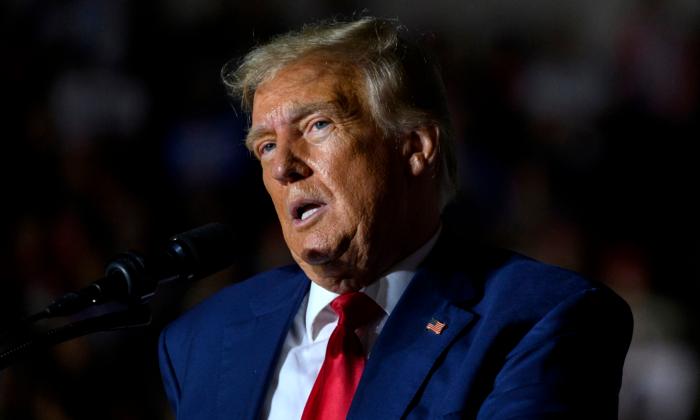The Chinese regime has denounced comments by an Australian politician who drew a comparison between the West’s response to China’s rise and France’s failure to contain the advance of Nazi Germany.
Australia suffers from an “intellectual failure [that] makes us institutionally weak,” Hastie warned.
“If we don’t understand the challenge ahead for our civil society, in our parliaments, in our universities, in our private enterprises, in our charities—our little platoons—then choices will be made for us. Our sovereignty, our freedoms, will be diminished.”
He labeled the West’s hopes that economic liberalization would eventually lead to China’s democratization as “our Maginot Line”—a series of fortifications built by the French in an attempt to deter a German invasion during World War II.
“It [the belief that China would democratize] would keep us safe, just as the French believed their series of steel and concrete forts would guard them against the German advance in 1940,” Hastie wrote.
“But their thinking failed catastrophically. The French had failed to appreciate the evolution of mobile warfare. Like the French, Australia has failed to see how mobile our authoritarian neighbor has become.”
The Chinese Embassy in Australia responded on Aug. 8, saying it “strongly deplore[d]” Hastie’s comments and accused him of “Cold-War mentality and ideological bias.”
Hastie’s warning came as the newly confirmed U.S. Defense Secretary Mark Esper, while in Sydney on Aug. 4, warned of the regime’s “destabilizing behavior” in the Indo-Pacific.
“We also stand firmly against a disturbing pattern of aggressive behavior, destabilizing behavior from China,” Esper said, while on his first overseas trip.
“This includes weaponizing the global commons, using predatory economics and debt for sovereignty deals, and promoting state-sponsored theft of other nations’ intellectual property.”
Days later, NATO Secretary General Jens Stoltenberg, also in Sydney, said the North Atlantic security body needed to address the Chinese regime’s rise.
He said China has invested “heavily in critical infrastructure in Europe, increased presence in the Arctic, and also increased presence in Africa, and in cyberspace.”
“So all of this makes it important for NATO to address the rise of China, and we do that not least by working closely with our partners in this region—Australia, New Zealand, but also Japan and South Korea.”
Australian Prime Minister Scott Morrison said Hastie was free to make comments as a member of parliament.
“I don’t think anyone is in any way unaware of the challenges that present there, so to that end I don’t think [Hastie’s opinion piece] is offering anything new,” Morrison said.
Australia passed laws in 2018 to combat foreign interference, which were introduced in the wake of what then-Prime Minister Malcolm Turnbull described as “disturbing reports of Chinese influence.” Modeled on similar laws in the United States, the laws created new espionage offenses, set up a register for foreign agents, and banned foreign political donations.
Recently, Australia’s Foreign Affairs Minister issued a warning to foreign diplomats in the country who were attempting to stifle free speech, after a Chinese diplomat praised pro-Beijing students for their “patriotic behavior” after they clashed with pro-Hong Kong students at a university. The pro-Hong Kong students had organized activities in support of protesters in Hong Kong who opposed a controversial extradition bill.
New Zealand followed suit on Aug. 7, when it rebuked the Chinese regime for similarly praising the “spontaneous patriotism” of some mainland Chinese international students who opposed a group of pro-Hong Kong protesters at a demonstration, during which one pro-Hong Kong activist was pushed to the ground.
“The government has rebuked China over its recent comments and actions where it sought to suppress freedom of speech and voiced support for violent opposition to Hong Kong protesters in New Zealand,” said a New Zealand foreign ministry spokeswoman.





